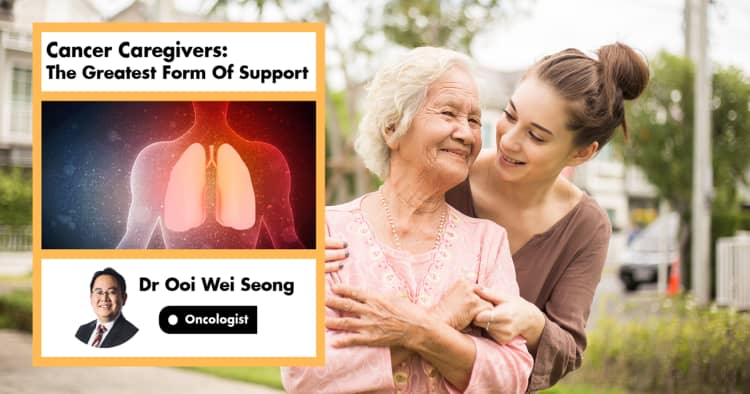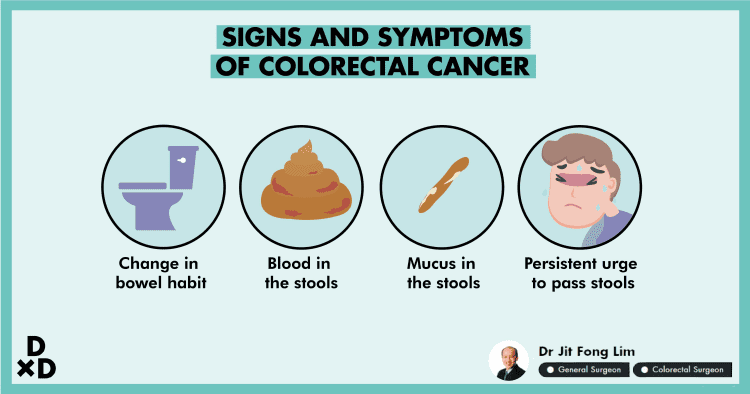Lung cancer is the 2nd-most type of common cancer in Singapore men. In this article, I will be discussing everything about lung cancer treatments in Singapore. Read on to find out more about the risk factors, diagnosis, and new treatment methods!
In women, it is the 3rd-most common cancer. Lung Cancer happens when abnormal cells grow into tumours. When this affects the lungs, breathing functions can be hindered.
While a diagnosis can be scary, there are now various new lung cancer treatments that can greatly increase survival. It is most important to get a treatment that is individualised to your condition.
What is Lung Cancer?
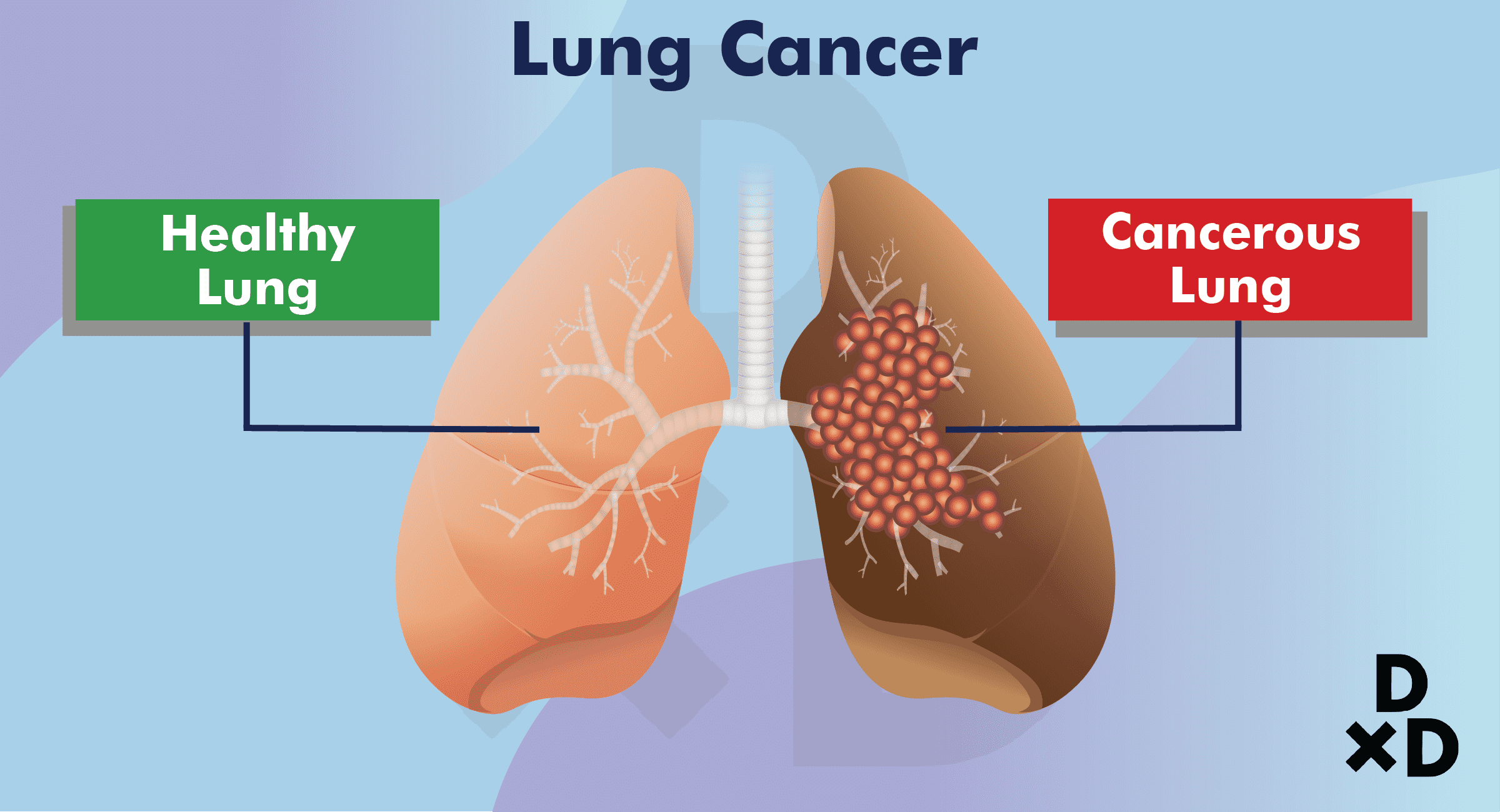
Lung cancer occurs when there is abnormal growth in the cells lining the airway of your lungs. It can start from any part of the lungs, in both the left and right.
There are 2 different types of lung cancer: [1]
Non-small cell lung cancers (NSCLC)
The majority of lung cancers are either adenocarcinoma or squamous cell carcinoma. They account for around 85% of all lung cancers. Both are grouped under NSCLC as they tend to have similar treatment routes.
Small cell lung cancers (SCLC)
This is rare but is more aggressive. On top of that, it spreads much faster and tends to be diagnosed only after it has spread. For these cases, chemotherapy and radiation will be needed to manage the symptoms. Unfortunately, there is also a high recurrence rate.
In this article, I am going to focus only on NSCLC. They are much more common and also have a higher chance of recovery.
What are the Symptoms of Lung Cancer?
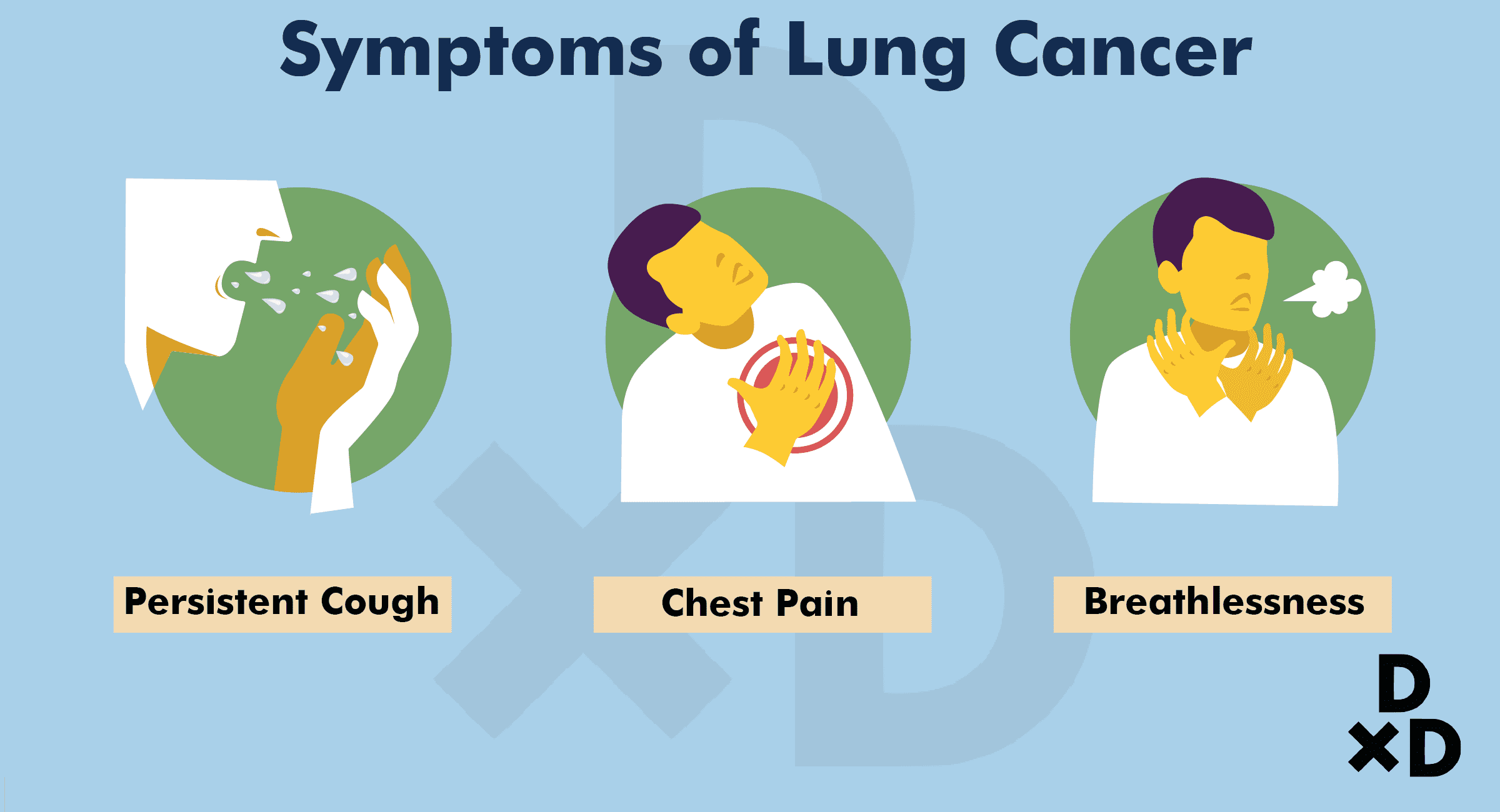
When the cancer is small, it rarely causes any symptoms. This is why most of my patients are diagnosed only after the cancer has developed into a later stage.
Some of the common symptoms are [2]:
- Persistent cough
- Breathlessness
- Pain around the chest or other body parts
You may be confused about why pain in other body parts can be a symptom of lung cancer.
I once had a young patient who came to me for pain in her hip. I found a crack in her hip bones, even though she had no history of trauma. Further tests found that she had lesions in her lungs and brain. She was eventually diagnosed with advanced-stage lung cancer despite having no symptoms in her lungs.
To avoid a late diagnosis, I would advise that you seek medical attention if you see any new symptoms. This is especially true for persistent pains.
Related: 5 Reasons Why You Should Not Ignore Your Chest Pains
What causes Lung Cancer?
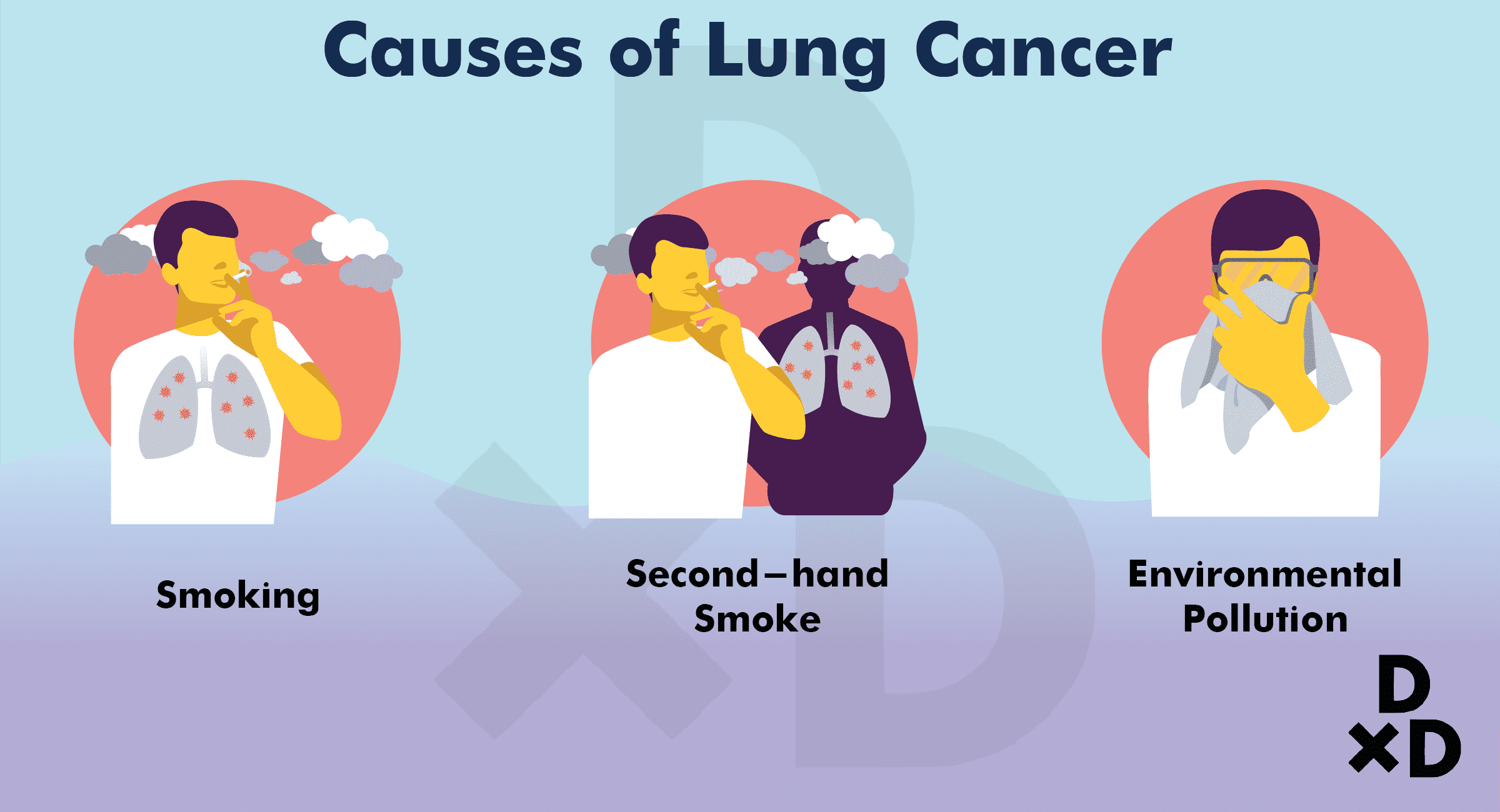
Based on my experience and also data from various research, the leading risk factors include: [3]
- Smoking
- Second-hand smoke
- Environmental pollution
You may have heard that lung cancer is more common in male patients. Research has also found that to be true. This is due to a difference in lifestyle, with men being more prone to the risk factors mentioned above [4].
Also read: The Ultimate Guide to Pneumothorax in Singapore (2020)
However, I have interestingly seen an increase in lung cancer cases in those who do not smoke. There has also been an increased incidence in women. These cases are most likely due to gene mutations that cause cells to grow uncontrollably.
“I am still young, don’t worry!”
Most of my patients are above 50 years old. However, that is not to say that young adults have no risk of developing lung cancer. 2% to 5% of lung cancer patients are actually younger than 40 years old [5].
On top of that, your current lifestyle may affect and increase your risk of developing the disease. Even though lung cancer usually develops much later in life, most cases are related to an early onset of smoking [6].
Regardless of age, I highly recommend that you stop smoking. It is not only due to lung cancer; smokers are also at a much higher risk of developing other diseases.
How is Lung Cancer diagnosed?
If you experience symptoms of lung cancer, consult a doctor immediately.
Firstly, I will send patients for a chest X-ray, CT scan, or PET-CT scan. The prices differ between the types of tests and the regions tested for.
Type of test
Cost
Chest X-ray
$45 - $120
CT scan
$600 - $1,800
PET-CT scan
$2,000 - $4,000
Cancer patients can use up to $600 each year from MediSave to pay for the different types of scans.
To confirm the diagnosis, I will also send you for a biopsy. This can done in 2 ways:
- Under CT guidance
- Via bronchoscopy if the lump is deeper in the lungs and closer to the main airways.
Depending on the method used, the biopsy will cost between $2,500 and $4,000 at private hospitals.
Some patients have asked me if it is possible to diagnose cancer just from the scans. The answer to that is simply "no". A biopsy is important because it can show the exact cell type. I can determine which treatment is suitable for you only after that is clearly defined.
In addition to diagnosis and treatment, the biopsy results will also be needed for your insurance claims.
How is Lung Cancer Treatment in Singapore conducted?
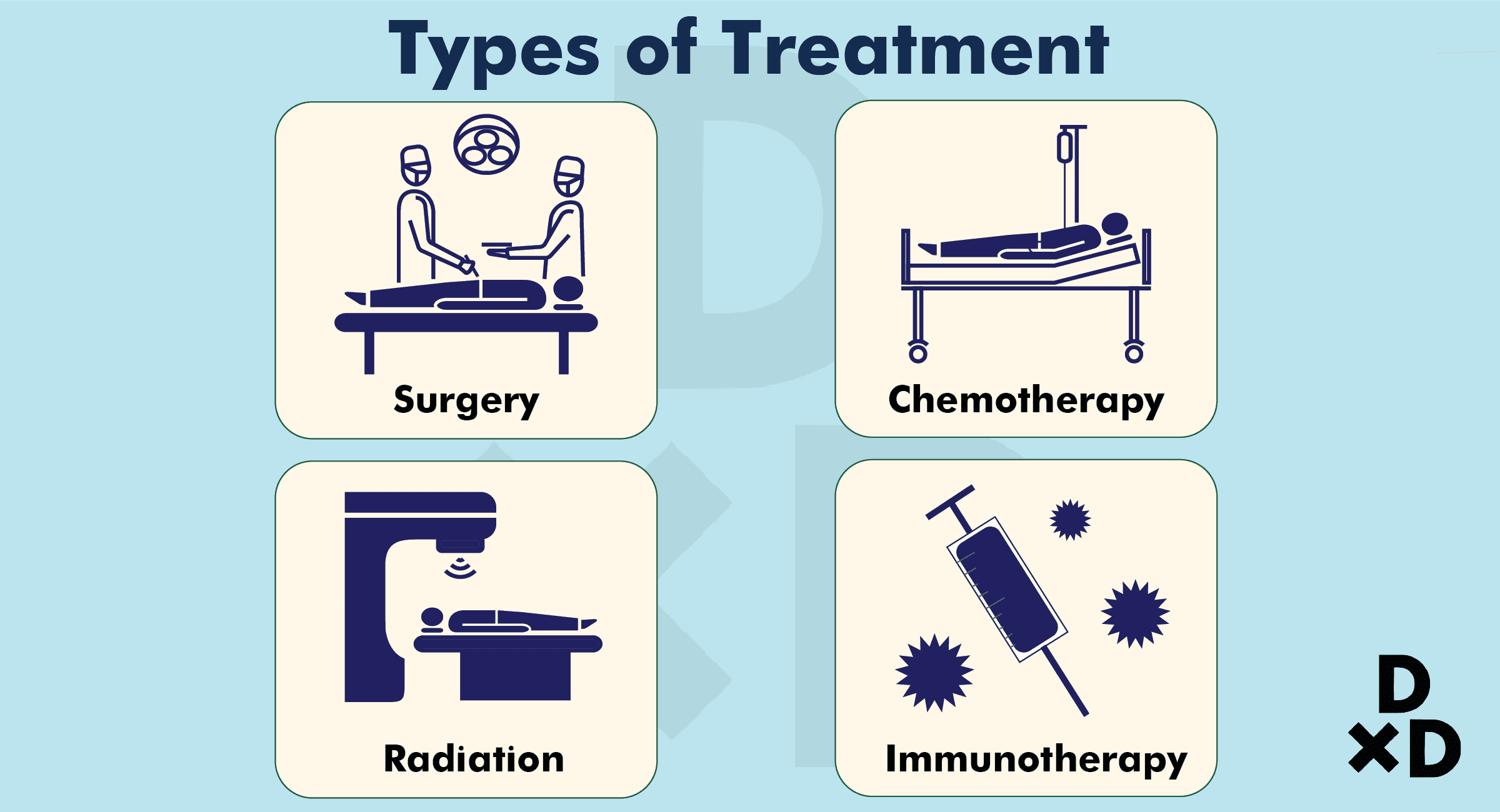
As mentioned earlier, the first step is to confirm the diagnosis. The treatment will depend on the stage of the cancer. Before that, let me first explain the difference between grading and staging.
Grading depends on how aggressive the cancer cells are. This is based on how the cells look under a microscope.
Staging refers to the extent of the spread. This describes whether the cancer has spread to other parts of the body. The stage of your cancer dictates the choice of treatment [7].
There are a few different modalities, and the choice will depend on your condition. Most importantly, quite a few of my patients will also have to undergo a combination of treatments. These may include:
- Surgery
- Chemotherapy
- Radiation
- Targeted therapy
- Immunotherapy
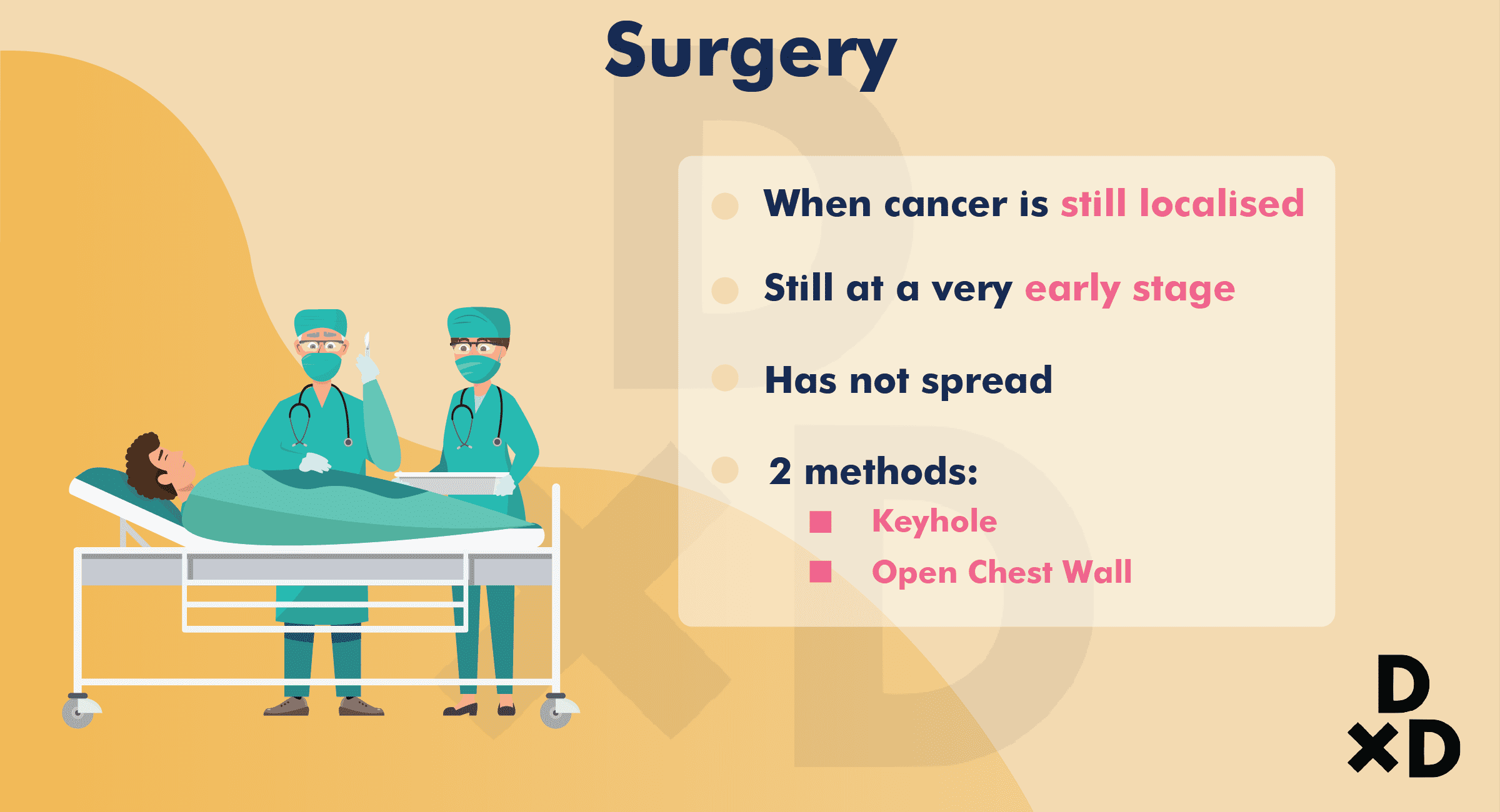
1. Surgery
I usually recommend surgery only for those whose cancer is still localised.
This is to say that the cancer is still at a very early stage and it has not spread to other parts of the body.
Depending on the size of the cancer, there are two methods of surgery:
- Keyhole
- Open chest wall
On top of that, there are different types of surgery depending on what is removed:
- Wedge resection: a smaller part of the lung when the cancer is small enough
- Lobectomy: a whole lobe of a lung
- Pneumonectomy: a whole side of the lung
During the surgery, I will also remove the surrounding lymph nodes. This is to detect microscopic spreads that might be missed in the scans before the surgery.
Read this responses:
Which tumor markers are considered to be reliable indicators for cancer? What does enlarged lymph nodes indicate?
I will also send the removed tumour for microscopic examination. This is to make sure that the margins are all cleared and no cancer cells are left behind. The result of this examination will determine if you need to undergo chemotherapy.

2. Chemotherapy
Some patients have asked me: “Why do I still need chemo when I have already had surgery?”
It is because there is currently no way to guarantee that there are no more cancer cells in the body. I administer chemotherapy to hopefully kill whatever cancer cells that are still there.
Related: 13 Side Effects of Chemotherapy This Oncologist Wants You to Know About
That said, not everyone needs it. You should consult an oncologist to see which treatment is necessary. It will depend on your condition and the final report after the surgery.
Indications that might show that you need chemotherapy include:
- Larger tumour size
- Traces of spread to lymph nodes

3. Radiotherapy
For a locally advanced tumour that has spread to nodes, surgery is not suitable. This is especially if the spread can be found in scans, as it means that the spread is quite rampant.
Instead, I would recommend getting chemotherapy and radiotherapy concurrently. Chemotherapy uses drugs to kill cancer cells, while radiotherapy uses a high dose of radiation.
This could kill or, at least, slow down the growth of cancer cells [8].
At this stage, the disease is still curable. In addition, there are also new treatments that can help you get a full recovery.
4. Targeted therapies
These involve drugs that target specific gene mutations found in lung cancer. Consider these mutations "switches" that "turn on" cancer growth. The drugs help block these mutations. With that, we are essentially turning off the "switches" that cause the cancer cells to grow uncontrollably.
Not all cancers have these gene mutations. This is why it is important to get a complete test to see whether this treatment is suitable for you. If it is, there are some advantages:
- The side effects of rash and diarrhoea are easier to manage compared with other treatments
- The drugs often come in pill form, and are thus very convenient to take
New technology has improved not just treatment options. It is increasingly possible for a blood test to be able to detect these mutations.
However, this method of detection is still uncommon and may not be as sensitive as the older methods. Do ask your oncologist whether you can choose this option.

5. Immunotherapy
When used together with chemoradiation in stage 3 lung cancer, immunotherapy can reduce the chance of recurrence. With that, your chance of survival also increases.
Immunotherapy is also a very promising treatment for stage 4 lung cancer patients. While it is not for all patients, the ones that respond to it usually do very well.
It is now possible to say that some patients appear to be in prolonged remission while undergoing immunotherapy [9]. This is to say that all signs of cancer are paused during the treatment process.
Immunotherapy works by boosting the body’s natural immune system. It helps your body fight the cancer cells. The type of immunotherapy needed will depend on your condition.
I will use the results of your PD-L1 immunohistochemistry testing to determine the type that is most suitable for you.
It is now also very common to send the lung biopsy for multiple testing. This is no longer just to determine the stage. No two cancers are the same, and detailed data on your condition will help doctors choose the most appropriate treatment specifically for you.
With that now available, lung cancer treatments can be personalised to each individual.
As you can see, there are various treatments available for cancer. Together with the ongoing research, I am sure there will be a treatment that can help you manage the condition.
How do Personalised Lung Cancer Treatment work in Singapore?

One of my patients is a good example. At first, she presented water in her chest from lung cancer. Further tests found a gene mutation to be the main cause of the cancer. I then prescribed targeted therapy, in the form of pills, for her treatment.
Within a month, her symptoms improved. As mentioned earlier, targeted therapy works very well for those with a gene mutation. She managed to stay on the pills for 2 years before resistance was apparent.
This means that the cancer started growing again after the initial period of shrinkage while on the treatment.
I sent her for another test to detect further gene mutations. Low and behold, a different gene mutation was found. For that, I prescribed another pill and this kept her disease controlled for another 2 years.
She just recently started on chemotherapy after 4 years of good control with pills only.
This example shows how various treatment methods can work depending on your condition. It also shows that the treatment depends on your diagnosis! Targeted therapy, being a treatment with greater comfort and fewer side effects, is thus a new option that would allow better care for cancer patients. The different types of treatment increase the chance of survival.
If you suspect you have lung cancer, please get a detailed test as soon as possible.
I had another elderly patient who initially presented coughing of blood. He ended up in the intensive care unit and was initially treated with chemotherapy. However, it was evident that his lung cancer was not responding to the treatment.
I changed his treatment route to immunotherapy. This was back in 2015 when the method was first made available in Singapore. The lung cancer responded well with this treatment and his latest scan showed that the cancer may not be there anymore.
What should I do if my loved one has Lung Cancer?

If you see any symptoms, do consult a doctor immediately. As with other cancers, early diagnosis will greatly improve your chances of a full recovery.
Lung cancer treatments have come a long way and recent developments have improved the survival of many patients. More importantly, survival is prolonged in a meaningful way.
I always tell my patients that it is possible to get the strongest treatment available that will greatly shrink the cancer. That said, there is no meaning to this if the side effects cause the patients to be bound to a bed for the rest of their lives.
I always take the time to discuss the details of the disease with the patient and their caregivers. It is very important for everyone involved to have the same understanding and expectations throughout the whole process, from diagnosis to treatment and future follow-ups.
Also read: Cancer Caregivers: The Greatest Form Of Support Through The Cancer Journey
To patients, what matters most is receiving empathy and the independence to make their own decisions. It is important to let patients decide the direction they want to take on their cancer journey.
My role as an oncologist is to diagnose and present all the possible treatment methods. With all that is available in Singapore, I am sure that there is a treatment that will help you manage the condition.
Gone are the days where we would tell patients that there is no treatment available and that their time is limited. The advent of new therapies has truly turned one of the deadliest cancers to something that is more treatable.
Is Lung Cancer Treatment covered by MediSave?
As mentioned earlier, there are various treatment methods available in Singapore. The problem is, lung cancer treatment can be quite expensive.
Thus, the government has various subsidies to help you pay for the treatment:
- MediSave
- Surgery: up to $5,000 depending on the type
- Chemotherapy (and immunotherapy): up to $1,200 per month
- Outpatient radiotherapy: up to $80 (external) or up to $360 (internal) per treatment
- MediShield is the basic life insurance scheme operated by CPF. It aims to subsidise your treatment fees so you use less of your MediSave.
- MediFund is a safety net set for patients who cannot afford treatment even after using MediSave and MediShield. For more information, click here.
- The Medication Assistance Fund can be used to pay for certain drugs that are not in the Standard Drug List. It depends on your prescription, so do ask your doctor.
How can I prevent Lung Cancer?

While treatments are available and continuously improving, a full recovery is not completely guaranteed. The cancer may recur and the treatment itself is a long process that can be very tiring.
Related: How can one improve non-stop coughing that is due to cancer treatment?
Thus, preventing lung cancer is still the better option. These are some ways to prevent lung cancer:
- Stop smoking
- Avoid second-hand smoke
- Do not allow smoking around your house
- Wear the N95 respirator mask in smoke-prone public places
- Ensure workplace safety by following the correct procedures when handling chemicals containing carcinogens
I wrote this article so that everyone may be more aware of their health. I also wanted to raise awareness on all the treatment methods that are available in Singapore, both old and new.
Prevention is still the No. 1 safe bet, early diagnosis comes next. There are also various treatments that can be individualised specific to your needs. If you see any prolonged and unexplainable symptoms, do visit a doctor immediately!
Get treatment quote for Lung Cancer Treatments
Dr Ooi Wei Seong is an oncologist at International Cancer Specialists. His main interest lies in the treatment and management of lung, breast, and colon cancers. On top of his clinical work, he is also an active speaker, tutor, and researcher who has participated in multiple clinical trials.
Read more from Dr Ooi Wei Seong in his Q&A here.
Would you like to ask any related health questions?
You can Ask A Doctor right away, or view the complete list of Human Sessions.



